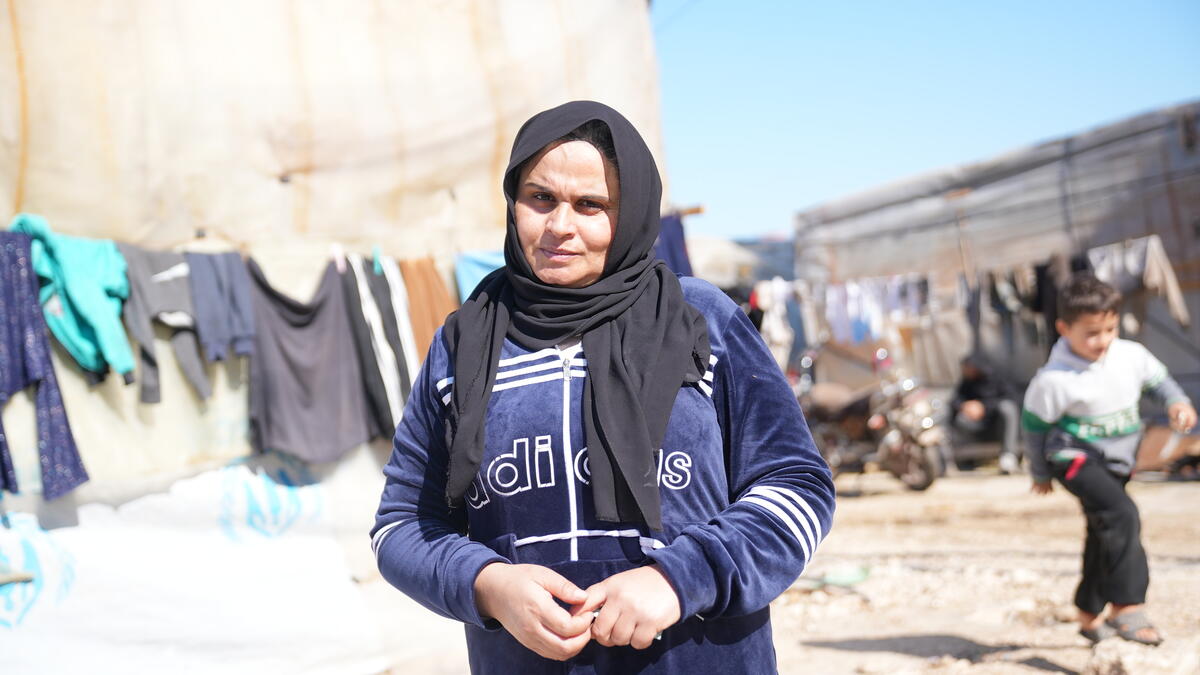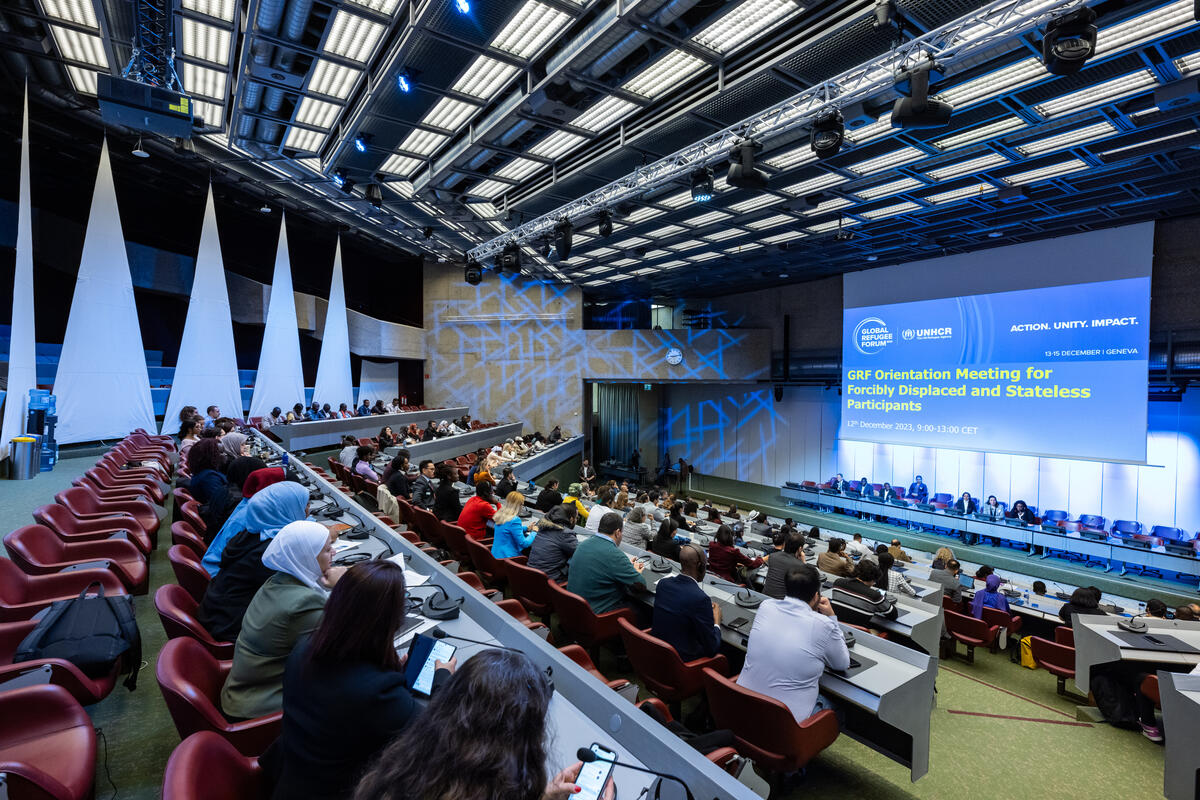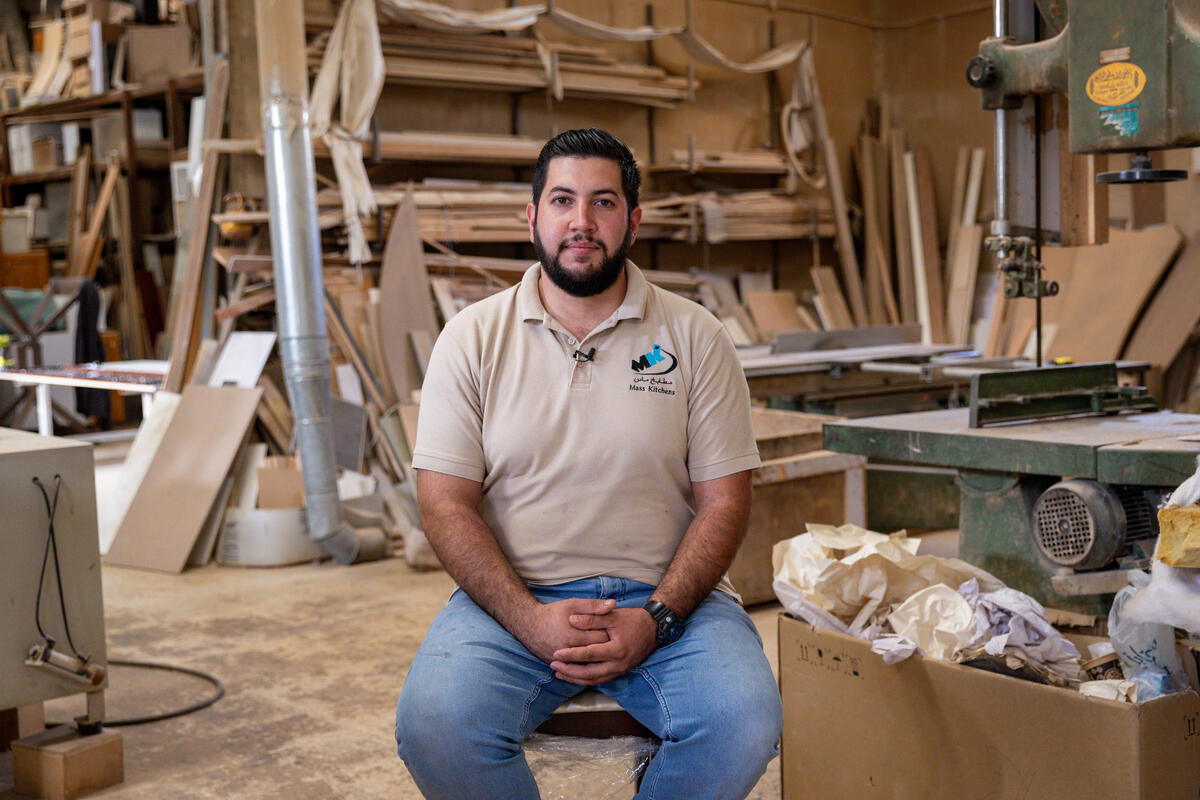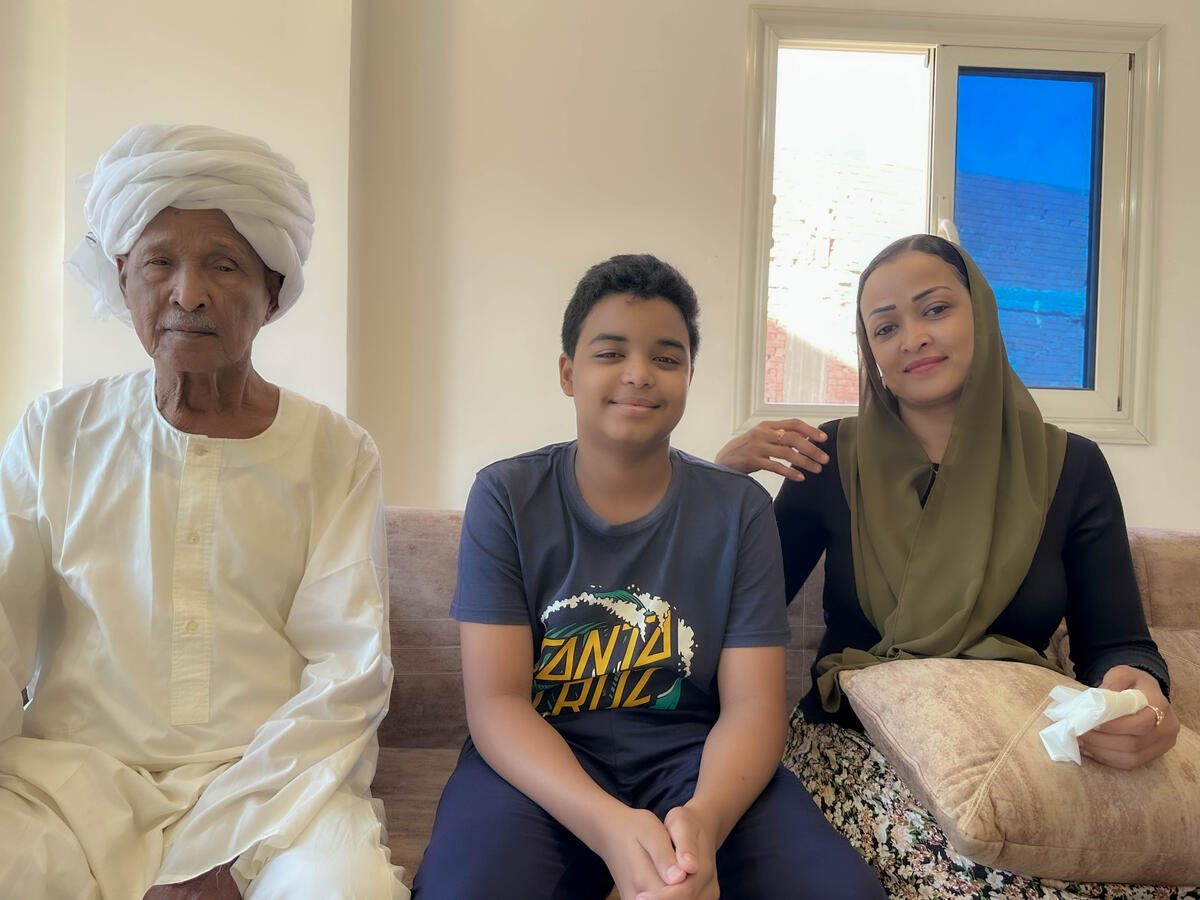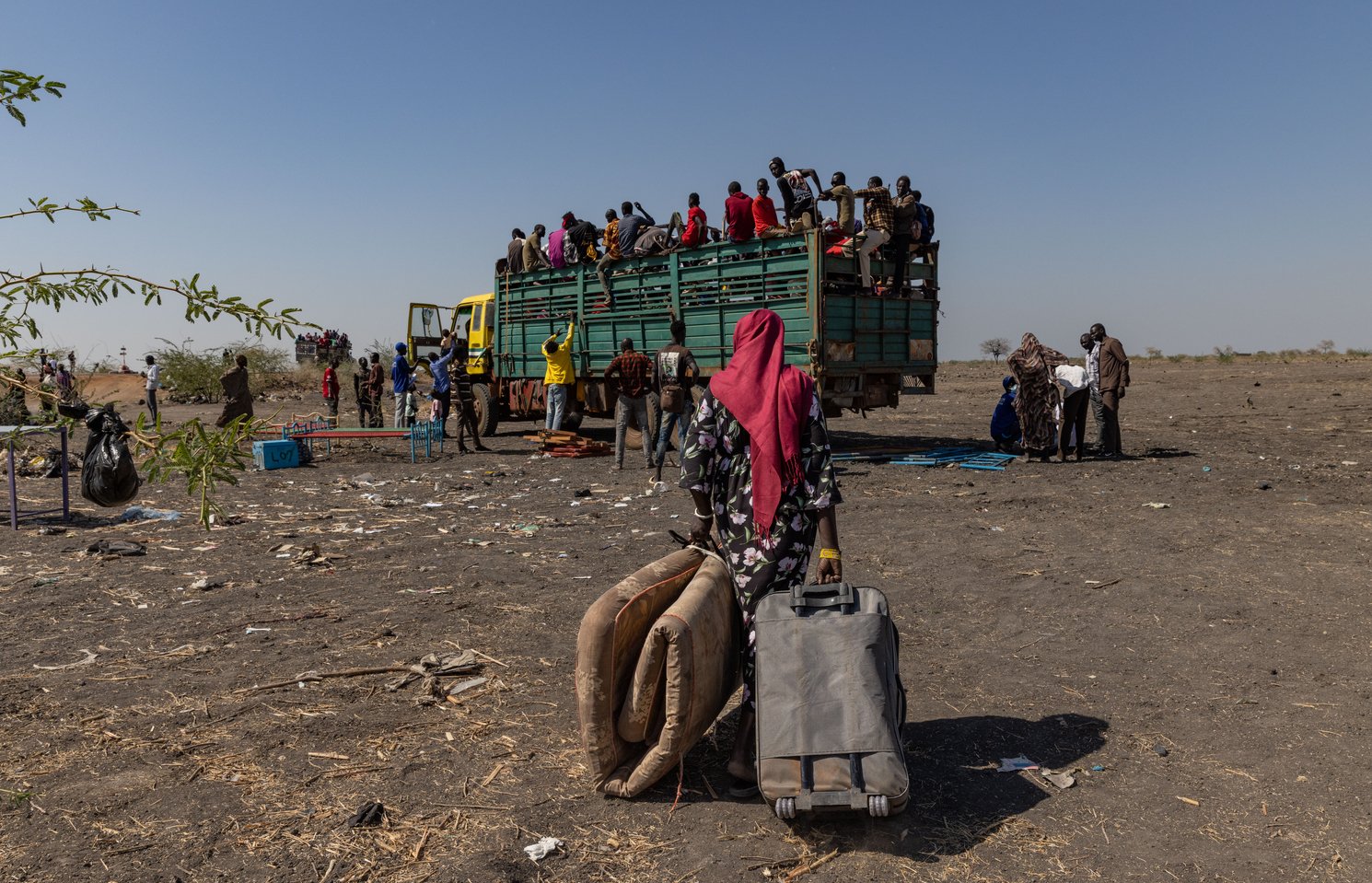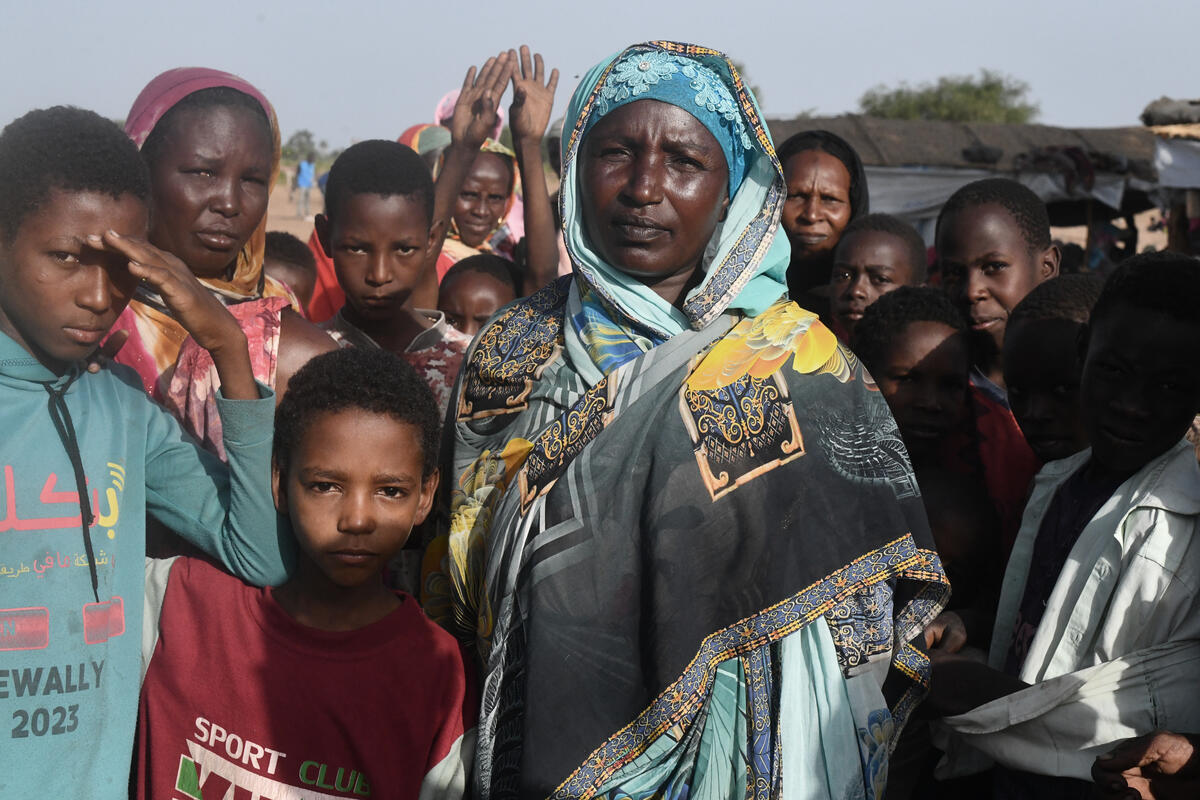Refugees watch Iraqi elections with doubts and hopes
Refugees watch Iraqi elections with doubts and hopes
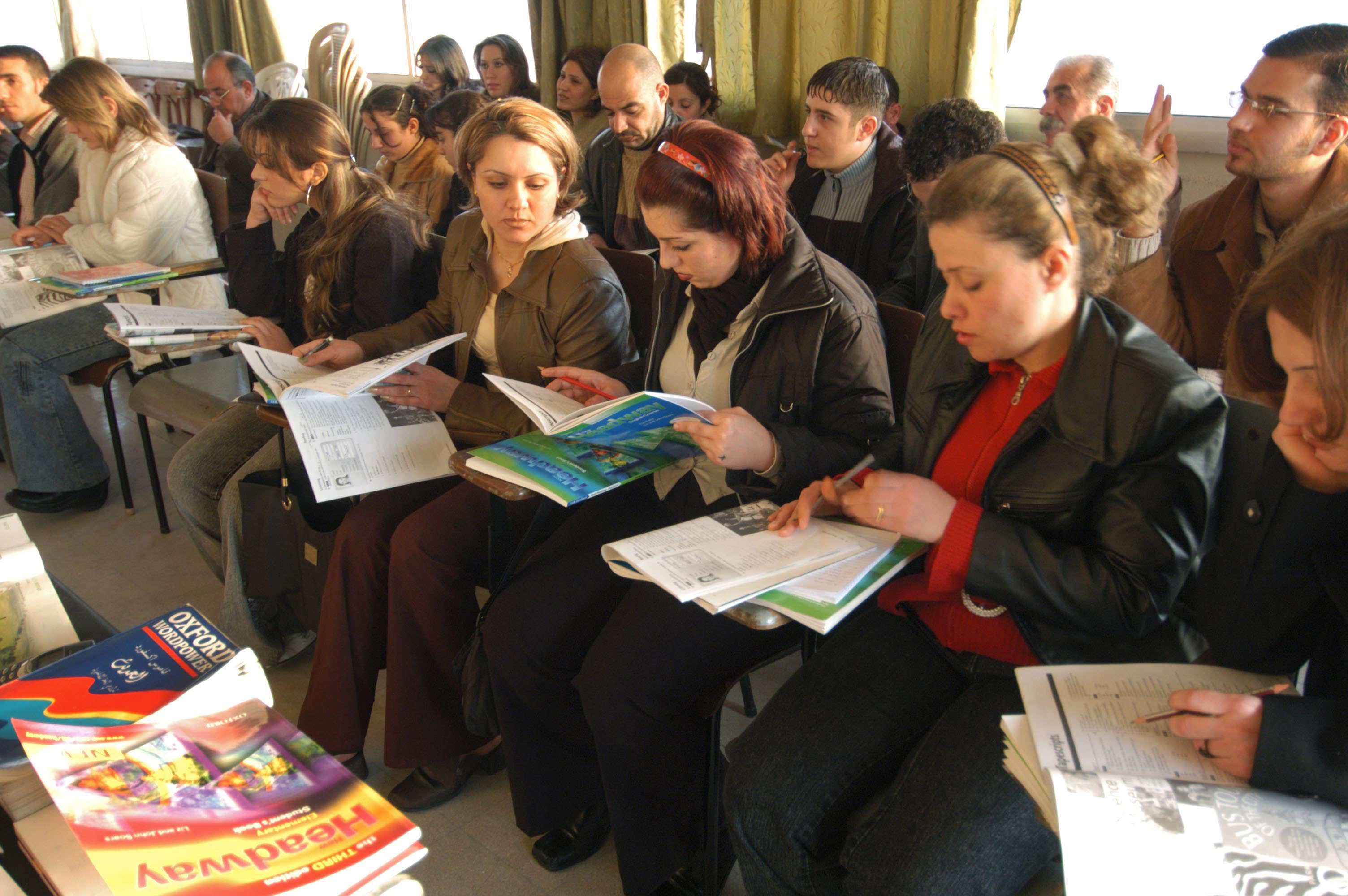
BEIRUT, Lebanon, March 1 (UNHCR) - Like many Iraqi refugees forced from their homeland by war and sectarian conflict, Murtada hopes parliamentary elections on March 7 will restore security to Iraq to facilitate the safe return of hundreds of thousands of Iraqis living in host countries across the Middle East.
Iraqi refugees in Jordan, Lebanon, Syria and Egypt are divided on whether to participate in Iraq's coming parliamentarian elections. Many Iraqi refugees registered with UNHCR are sceptical the polls will end the abductions, killings and suicide bombings that drove them out of their country.
Many prefer either to remain in the host countries or seek resettlement to third countries. Return to Iraq under insecure and unstable conditions is not an option for many Iraqi refugees.
"If Iraq was safe, we would return today. Unfortunately the dangerous security situation has forced us to seek refuge outside Iraq. We are not optimistic the election will bring about security, but I'm hopeful my vote will make a difference and lead to change," said Murtada, 26, an Iraqi refugee in Lebanon.
Threats and attacks made Murtada flee in 2004 to Lebanon, where he registered as a refugee at the UNHCR office in Beirut.
"I was losing hope of resettlement and faced harsh conditions without a residency permit in Lebanon, so I took the risk and returned to Iraq in 2009," he said. "One week later I was abducted and beaten up, and a month later my wife was killed in a suicide bombing. I fled again and decided I would not return until Iraq was a secure place to live in."
As the end of 2009, UNHCR had on its records some 300,000 Iraqis who had registered and are believed to still be in the region, including more than 210,000 in Syria. Close to 190,000 are of voting age. In addition, host government sources indicate the total number is much higher, as hundreds of thousands do not register with UNHCR for a variety of reasons.
So far about 35,000 Iraqi refugees have been resettled in the United States and Europe but it will never be a solution for everyone. Most of the refugees will continue waiting for conditions inside Iraq to improve so they can go home.
Following a request by the Iraqi Election Commission, UNHCR said it stands ready to help the participation of Iraqi refugees living in countries neighbouring Iraq in the elections. They are considered to be a major opportunity to consolidate national reconciliation.
"In close cooperation with the competent Iraqi authorities and the host governments, UNHCR's assistance will be limited to providing demographic data on the registered Iraqis, informing them of their rights to participate in the elections, and providing logistical support that may be needed for a smooth and orderly election process," UNHCR spokesperson Melissa Fleming told journalists in Geneva after the Iraqi request.
Iraq's March election is a test of whether the country will move toward democratization and peace or slide back into ethnic and sectarian violence. Security remains fragile. Violence has been rising in parts of the country ahead of the election and as the United States plans to trim its troop presence in Iraq by the middle of this year.
"I will not take part in this election. Why should I vote and what I will get by voting? Nothing," said Haidar, a 60-year-old Iraqi refugee living in Syria. Angry and tense, he was sceptical the election would lead to an improvement in the security situation in Iraq. "I don't believe the election will help us return to Iraq. I will not return to Iraq under these insecure conditions," he said.
Iraqi refugees in different countries cited sectarian violence as the greatest threat if they return. Despite often poor living conditions in host countries, they say going home was too dangerous.
Many people were traumatized in Iraq by their experiences and the violence that depived them of loved ones. UNHCR has provided mental and physical health assistance to many Iraqis through local partners.
During a meeting of a UNHCR community service officer with Iraqi refugees in a Beirut suburb, they discussed problems refugees face and how to resolve them. Protection through resettlement topped their requests, followed by concerns about economic security, education for their children and health care.
"We're caught between a rock and a hard place," said Nada, who has three children and a bed-ridden husband. She is unemployed and terrified of detention by authorities who might not distinguish between illegal migrants and refugees. "I will vote because I still have hope that one day security might be restored in Iraq."
By Wafa Amr in Beirut, Lebanon


